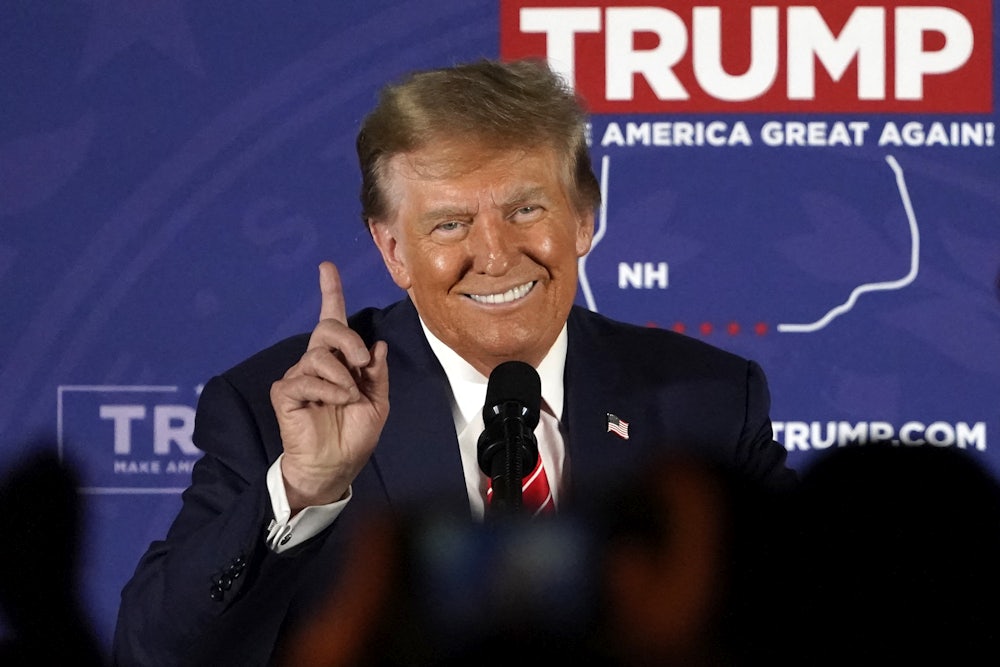The GOP’s favorite phrase when it comes to presidential politics appears to be, “Nobody knew at the time.”
Once a president is sworn into office, regardless of how much evidence there is of crimes and irregularities committed to get him there, both the press and the electorate just seem to want to ignore that evidence and move along. After all, there’s never been a successfully contested presidential election in American history.
Which is why the GOP will again count on getting away with their crimes against electoral democracy this fall. The big question for America will be, “What did we miss that we should have known at the time?”
We have, you’ll recall, seen this movie before:
—When Richard Nixon ran against incumbent Vice President Hubert Humphrey in 1968, nobody knew at the time that Nixon’s campaign had reached out to the South Vietnamese leadership and promised to make them rich if they’d refuse to go along with the Paris peace talks and thus sabotage the peace deal that LBJ had worked out with them earlier that summer.
A week before the election, LBJ discussed it with Republican Senator Everett Dirksen, who agreed that “this is treason.” Nonetheless, both men took the story to their graves; America didn’t learn about Nixon’s treachery until the LBJ library finally published the tape recordings of the phone call.
—When Ronald Reagan ran against Jimmy Carter, nobody knew at the time that Reagan’s campaign had cut a deal with the mullahs of Iran to hold the hostages until after the election, making Carter appear fatally weak and politically impotent.
We didn’t learn about Reagan’s treason until the then president of Iran, Abolhassan Bani-Sadr, emigrated to America and wrote a 2013 article for The Christian Science Monitor in which he laid out the plot. The story was corroborated a year ago in The New York Times by Texas’s former Lieutenant Governor Ben Barnes, who’d been along for the ride to Paris where the deal between the Reagan campaign and Iranian leaders was consummated.
—When the 2000 election recount ordered by the Florida Supreme Court was halted by five corrupt Republicans on the Supreme Court—handing the White House to George W. Bush by a disputed 537 votes—nobody knew at the time that Florida Governor Jeb Bush’s secretary of state, Katherine Harris, had commissioned a huge purge of voters, using a list of Texas felons that was 68 percent Black and Hispanic.
Harris did this because the national pool of Black and Hispanic names is relatively small: Black or Hispanic felons in Texas with names like Jim Washington or Jose Gonzalez are extremely likely to have similarly named counterparts in any other state with large Black and Hispanic populations like Florida.
Thus, when those Texas names were compared via a “loose match” (didn’t require a birthday or middle-name match) with Florida voters’ names, disproportionate numbers of Black and Hispanic Florida voters were deemed to be possible felons who’d somehow recently moved to Florida from Texas, and tens of thousands were removed from the voter rolls. As the U.S. Commission on Civil Rights noted:
14.4 percent of Florida’s black voters cast ballots that were rejected. This compares with approximately 1.6 percent of nonblack Florida voters who did not have their presidential votes counted.… In the state’s largest county, Miami-Dade, more than 65 percent of the names on the purge list were African Americans, who represented only 20.4 percent of the population.
—When Donald Trump was certified the winner of the 2016 election, nobody knew at the time that Russia had illegally poured millions of dollars and hundreds of thousands of man-hours into targeting swing-state voters identified by the RNC, whose names were handed off to Russian intelligence by Trump campaign manager Paul Manafort.
When Robert Mueller’s FBI team determined this crime had helped put Trump in the White House and that Trump had personally intervened in investigations 10 separate times in ways that could be prosecuted as criminal obstruction of justice, Bill Barr kept the news from America until the story had largely faded from the headlines.
What will be this November’s version of nobody knew? We have some clues.
—With the blessing of five Republicans on the 2018 Supreme Court, Republican-controlled states with large Black and Hispanic populations are purging voter rolls like there’s no tomorrow. Just between 2020 and 2022, fully 19,260,000 Americans—8.5 percent of all registered voters—were purged. The purge rate in red states was 40 percent higher than in the rest of the country. We won’t know this year’s purge numbers until well after the election is over.
—The GOP is trying to organize an “army” of 100,000 right-wing warriors to show up at polling places to “oversee” elections and challenge voters they think look suspicious. They’ll also be challenging signature matches on mail-in ballots, particularly in blue cities in red states.
—Republican elected officials from the state level all the way up to the U.S. Senate are refusing to say that they’ll accept or certify the result of the election this fall if Donald Trump doesn’t win. Multiple Republican members of Congress have asserted that only the House of Representatives should decide the presidential election this year (which would throw the election to Trump regardless of who the voters or Electoral College choose).
—In multiple states, Republicans have passed laws allowing them to manipulate and change the location of polling places; criminalize voter registration drives; replace Democratic and nonpartisan election officials with partisan GOP hacks; and, in Georgia and Arizona, throw out ballots from entire precincts. As Steven Levitsky and Daniel Ziblatt noted for The Atlantic: “Throwing out thousands of ballots in rival strongholds may be profoundly antidemocratic, but it is technically legal, and Republicans in several states now have a powerful stick with which to enforce such practices.”
—Typically, when politicians engage in nakedly deceptive politicking or election theft, they’re outed in the press and punished at the polls. Since 2020, however, Republicans have rewarded their politicians who tell lies and engage in underhanded tactics, suggesting there will be no limits to what the Trump campaign might do or say in the weeks leading up to the election, including the use of deepfakes and artificial intelligence.
—Saudi Arabia and Russia—both allies of Trump—have cut oil production by over 1.4 million barrels a day to drive up gasoline prices leading up to this November, just like they did in a dress rehearsal during the fall of 2022. History shows that gas prices spiking over $5 or even $6 a gallon will have a measurable impact on inflation and thus the election.
—Russia fielded a small army of online trolls to assist Trump’s electoral efforts in 2016 and 2020. Expect the same in November, except this time, according to Secretary of State Antony Blinken, China is also getting into the act on the GOP’s behalf.
—Benjamin Netanyahu defied President Obama when he was engaged in delicate negotiations with Iran, visiting the United States and addressing Congress at the invitation of Republicans. He’s expected to do the same slap-in-the-face gesture this fall to Biden, along with defying the president’s wish that Israel minimize civilian casualties in Gaza. Netanyahu will do everything he can to ensure Trump comes back into office, if for no other reason than keeping himself out of prison; demoralizing young progressive voters will almost certainly be at the top of his list.
But these are all things we know about right now, even if there’s little we can do about most of them.
Given the Nixon, Reagan, and Bush examples, our biggest concern should be to find the things we’d otherwise look back on after the inauguration and say about them: “Nobody knew at the time.”






